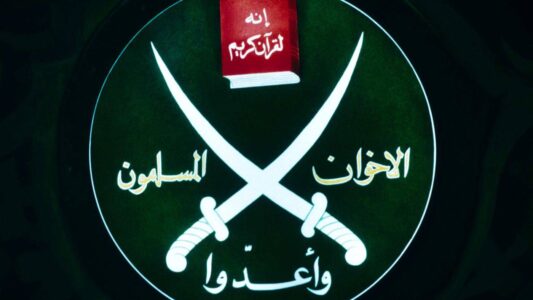
Europe must finally face up to the threat of the Muslim Brotherhood terrorist group
We are all grimly familiar with groups such as Al Qaeda, Isis, Boko Haram and Hizb ut Tahir. You don’t need to be an expert in extremism and terrorism to have a basic understanding of their destructive ways. Far less well known, however, is that all of them were founded or run by individuals who have some past or existing connection to the Muslim Brotherhood.
The Brotherhood is a religious-political movement, whose stated aim is to replace Western legal systems with their version of Sharia – a version far more brutal than already exists in many Muslim nations around the world. One of their founding principles is the establishment of a global caliphate with a single supreme political and religious leader.
Founded in 1928, the Brotherhood is generally believed to have taken a more violent turn in the 1950s, when its most notable theorist, Sayyid Qutb, promoted jihad as a weapon to be used against secular Arab governments. Qutb argued that Muslim societies living under these governments existed in a state of jahiliyya, akin to Arabia´s pagan existence prior to the Prophet Muhammad.
Qutb believed offensive jihad and the killing of secular officials could lead to the implementation of the Brotherhood’s vision, and that all who stood against this ideology were takfirs – or apostates – and therefore legitimate targets.
The Brotherhood seeks to implement its vision for a caliphate in stages. Its founder, Hassan al-Banna, promoted the gradualist construction of the Muslim individual, the Muslim family, the Muslim community, and finally the Muslim government, or Islamic State, which he believed would bind all Muslims to the Brotherhood. This can be viewed as the gradual de-coupling of individual Muslims from secular or non-Islamic states and societies.
When you examine the goals of groups like Al Qaeda, Isis and others, it’s easy to see how their inspiration derives from the Brotherhood’s puritanical definition of Islam, exemplified in Wahabism and Salafism. These orientations share several traits and beliefs, including that Muslims have deviated from ‘Pure Islam’ and that only a literal and strict interpretation of the Quran and Hadith is acceptable.
It is clear from even a cursory glance therefore that the Brotherhood is not a peaceful movement. They seek to impose their ideological purity on every aspect of life, from sexuality to economic life, to diet and even clothing. Their approach is absolute and total, with all criticism labelled ‘heresy’. And it is this fear of being labelled ‘heretics’ or ‘Islamophobic’ that drives European civil society away from adopting a more overtly critical approach to the Brotherhood.
Source: CAPX





